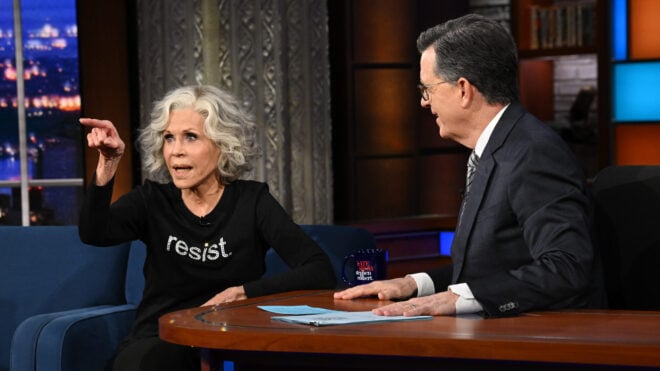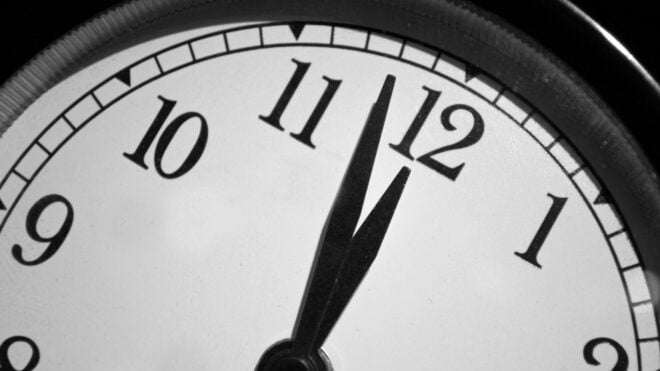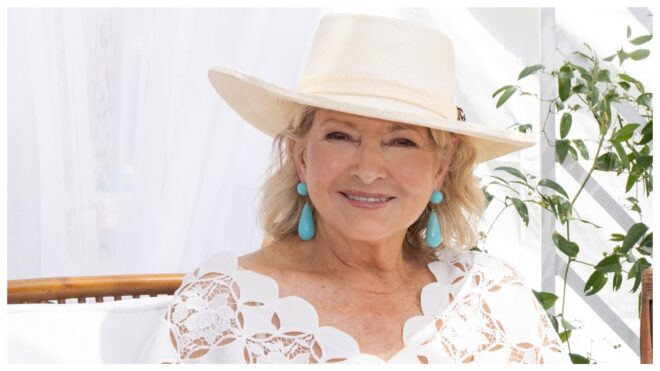
Alan Alda won the hearts of many with his iconic surgeon character, Benjamin Franklin "Hawkeye" Pierce on MAS*H. A recent interview with AARP The Magazine shows that Alan himself is just as witty and charming. While he graces the June/July cover of the magazine, Alan has been hunkered down in his Long Island home with his wife, Arlene, since shutdowns began.
Alan talks about his experience living through the pandemic as a man in his 80s who is battling Parkinson's disease. His passions for science and communication have informed him. They've also emboldened him to go forward in pursuit of answers and spreading knowledge, such as with his podcast, Clear + Vivid With Alan Alda.
Alan's appreciation for life isn't new, but his understanding of different concepts is. As he learns more about the world, he strives to share that knowledge in ways people really understand. In his interview, he opens up on how passion and love have carried him through his life.
Alan Alda may be best known for his role as Benjamin Franklin "Hawkeye" Pierce on MAS*H, but there's so much more to the actor. A man dedicated to science and communication, he's led a fascinating life filled with curiosity and the pursuit of knowledge.
"The other night we had dinner, virtually, with three couples. I'm a little bit ahead of most of my friends digitally."
"For years I've been fixing their computers, and I call my service Celebrity Tech Support," Alan joked. "The slogan is 'Why let a nobody touch your stuff?'"
The 84-year-old hosted Scientific American Frontiers for 11 years, where he got some of the top minds in the scientific community to explain complex matters in layperson's terms.
It inspired him to start the Alan Alda Center for Communicating Science at Stony Brook University on Long Island in 2009. His goal is to empower scientists with communication skills that let great minds share their critical work with clarity and passion.
"People are dying because we can't communicate in ways that allow us to understand one another," Alan posed in his 2017 book If I Understood You, Would I Have This Look on My Face?
"That sounds like an exaggeration, but I don't think it is. When patients can't relate to their doctors and don't follow their orders, when engineers can't convince a town that the dam could break, when a parent can't win the trust of a child to warn her off a lethal drug — they can all be headed for a serious ending."
Alan has a podcast that also focuses on communication. His guests have included Tom Hanks and Paul McCartney.
"It's just two people really listening to each other for 45 minutes," he said of Clear + Vivid With Alan Alda.
Matters of science and communication have only become more meaningful to Alan during this time. He's in a vulnerable age group where COVID-19 is concerned. He also is battling Parkinson's disease.
"I'm having a good time, under the circumstances," he explained.
"I'm very happy about some of the changes we've had to go through. For one thing, my wife, Arlene [the author of 19 books], is looking for ways to be creative during this time. So, she's gone back to painting and drawing, and she plays the piano every day, and she's experimenting with cooking. She looks into a sometimes empty refrigerator and comes up with a delicious meal. I haven't eaten this well since the last epidemic."
COVID-19 isn't Alan's first experience with an epidemic. He battled polio as a child.
"I got it when I was 7. I had a stuffy nose at the Warner's movie theater — honking the whole evening. I couldn't clear my nose. When I got home, I threw up, and my legs were unsteady. The next day, I had a stiff neck. I couldn't sit up in bed," he recalled.
"My parents called the doctor. Went to the hospital, had a spinal tap. I was in the hospital for two weeks, but then I had about six months of a therapy devised by Elizabeth Kenny, the famous nurse from Australia," he continued.
"I had nearly scalding blankets wrapped around my limbs every hour. It was hard on me. It was harder, I think, on my parents, who couldn't afford a nurse and had to torture me themselves. It's always better to pay somebody to torture your kid."
Alan also lives with Parkinson's disease. He explained how he came to a diagnosis a few years back.
"In 2015, I read an article in the New York Times by Jane Brody, in which a couple of doctors said some of their Parkinson's patients had one particular early symptom, and it's an unusual one: People act out their dreams while they're asleep. I realized I had done just that," he explained.
"I had dreamed somebody was attacking me, and in the dream I threw a sack of potatoes at him. In reality, I threw a pillow at my wife. So, believing there was a good chance I had Parkinson's, I went to a neurologist and asked for a brain scan. He examined me and said, 'I don't think you need a scan. You don't have any symptoms.' I said, 'Well, I'd really like the scan anyway.' And he called me back and said, 'Boy, you really got it.'"
He's been very proactive in taking good care of himself and is optimistic despite the diagnosis. "I began to exercise. A lot of people hear they have Parkinson's and get depressed and panicky and don't do anything, just hoping it'll go away. It's not going to, but you can hold off the worst symptoms," he noted.
"Movement helps: walking, biking, treadmills. But also specific things: I move to music a lot. I take boxing lessons from a guy trained in Parkinson's therapy. I do a full workout specifically designed for this disease. It's not the end of the world when you get this diagnosis."
Alan was asked about the secret behind his 63-year-long marriage. "Arlene's answer is that the secret to a long marriage is a short memory," he laughed.
"My answer? Love. Even when you're yelling at the person — and there will be yelling — keep in mind that this is the person you love more than anything. That changes your tone. So, you don't say, 'I hate you!' You say [singing], 'I hate you-u-u.'"
Alan and Arlene have three children and seven grandchildren. He was asked how he feels about their future considering everything that's going on in the world.
"With the world changing so rapidly, there's no point in being optimistic or pessimistic about anything. You've just got to surf uncertainty because it's all we get," he replied.
"A question I ask around the dinner table with friends is, 'How long do you think our species will last?' Scientists tell me the average species, when you factor in dinosaurs and fruit flies and everything, lasts about 2 million years. So, my question is: Do you think we'll be lucky enough to be average? If we're not careful, we can kill each other off. And if we're not smart enough to take care of what nature has in store for us, who knows how long we'll last?"
The interview concludes with Alan being asked what the best thing humans can do is. "Laugh! Laughter is good. That's one of the greatest benefits of this isolation. My wife and I are laughing more than we ever have," he revealed.
"When you laugh, you're vulnerable. You're opening yourself up. You're not protected. That's why a lot of executives don't laugh much, because they think it gives up their strength. But you gain so much through vulnerability. You let the other person in, and that brings us all closer," he noted.
"We can't take ourselves too seriously, even now. A good friend emailed recently and said, 'Alan, how are you doing? How's everything?' I wrote back and said, 'I'm still alive. If that changes, I'll let you know.'"




